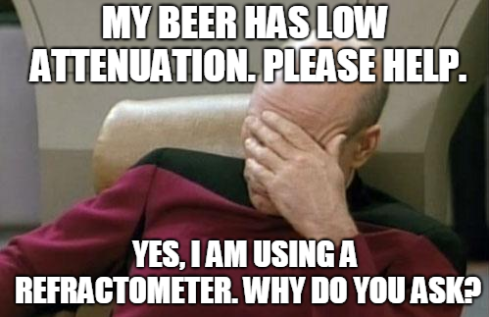Jordan Logo
Well-Known Member
tried googling this answer but everyone always goes down the path of “well we need more info before we answer!”
I just simply want to know is it ever too late to add another yeast starter to your beer? If so, how many days?
I just simply want to know is it ever too late to add another yeast starter to your beer? If so, how many days?

















![Craft A Brew - Safale S-04 Dry Yeast - Fermentis - English Ale Dry Yeast - For English and American Ales and Hard Apple Ciders - Ingredients for Home Brewing - Beer Making Supplies - [1 Pack]](https://m.media-amazon.com/images/I/41fVGNh6JfL._SL500_.jpg)











































